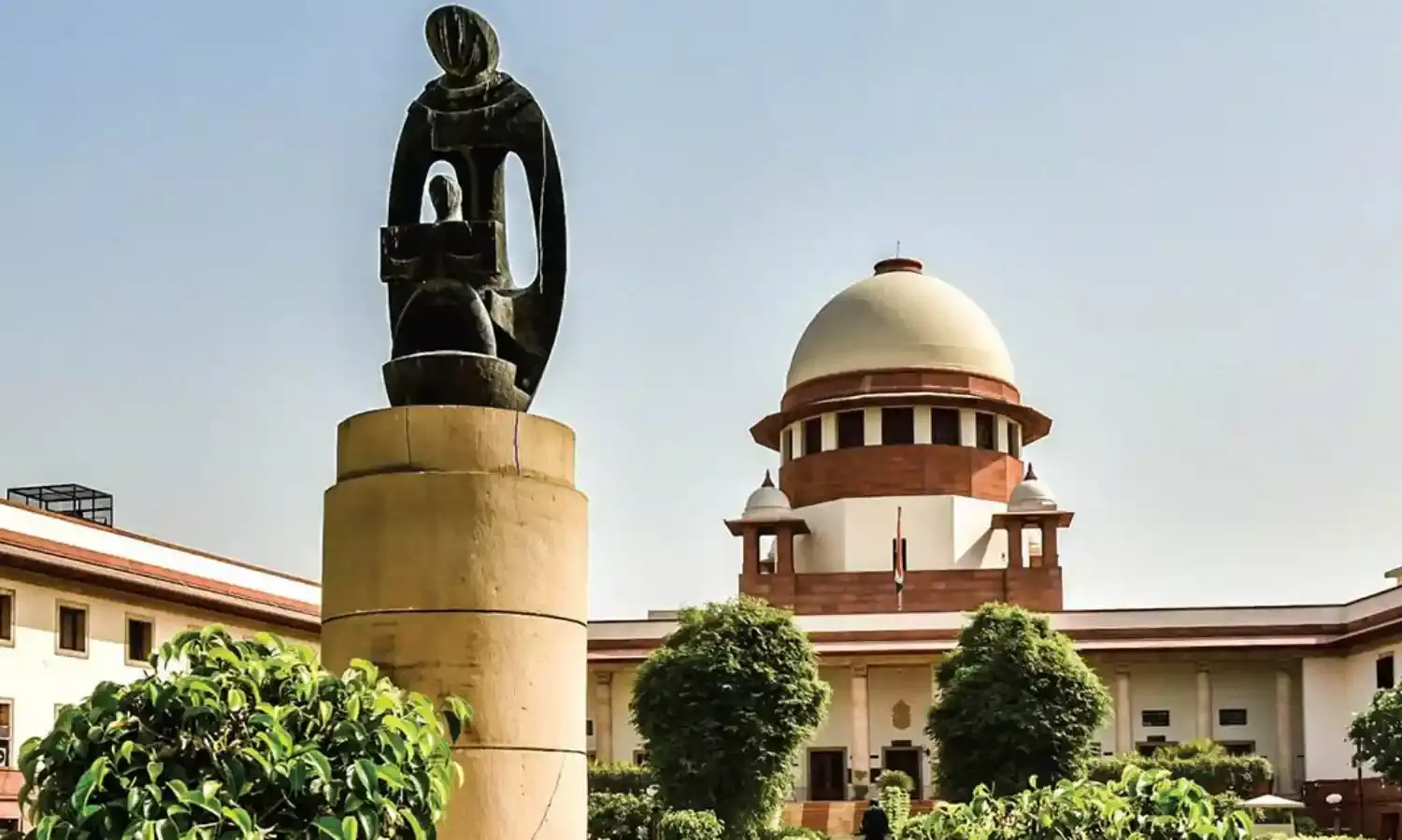The Path to Virtual Justice
Online courts and the future of justice

The Supreme Court of India in its latest attempt to adapt to the new system of Virtual Hearings in a Circular dated May 13, 2020 has decided to relax the dress code for Advocates appearing before the Court via video conferencing.
According to the Court, it is being done as a precautionary measure for containing the spread of COVID-19 upon medical advice received. We are now seeing practices probably unimaginable a few months back being adopted by the Supreme Court in an attempt to ease the transition to virtual hearings.
Author and Expert, Richard Suskin in his book, Online Courts and the Future of Justice, raised a question, ‘whether the court is a service or a place?’ The question requires deliberate examination and discussion, now more than ever. While there has been a very gradual shift across the world to incorporate technology into various fields, the entire process of justice delivery has continued to remain largely static.
The reforms in the past have been reluctant and sluggish at best. However, COVID-19 had forced the hands of the legal system and overnight, Courts have been forced to adjust to the increased reliance on technology and play catch up with the rest of the world.
As Legal Systems try and adapt the best they can, there is virtually no existing precedence for the challenge that COVID-19 has posed in the delivery of Justice. Apex Courts of India, the United Kingdom Canada, Australia, and Brazil among others have started conducting hearings of ‘urgent matters’ through video conferencing. The US Supreme Court recently conducted its first-ever remote hearing through the telephone.
The International Court of Justice (ICJ) has suspended all operations until further notice and the European Court of Human Rights (ECHR) has cancelled all hearings except those hearings that the suspension of which could cause “irreparable damage.” Overall most countries have either limited or entirely suspended regular court or limited hearings to only ‘Urgent Matters’ forcing the Justice systems to an unprecedented standstill.
This raises the question, can Justice wait? The Judicial System is an inalienable part of all modern democracies and as we deal with an unforeseen global crisis, the role of the legal system is more necessary now than ever. As governments grapple with an unparalleled crisis, astonishing measures are being implemented which significantly impact the rights of the people.
In many countries, the public is being asked to give up on many personal liberties for the common good. This also increases the scope for possible abuse by governments and the paramount role of the Judiciary to hold the executive accountable. The other significant aspect of the Justice system being put on hold is the impact it has on the lives of individual people. From matrimonial disputes, property matters and Bail matters, all hearings have been brought to a standstill.
How long can this be put on hold before, as the ECHR put, irreparable damages are done to the lives of people?
It is no secret that Courts around the world continue to be overburdened with pending cases and litigations. India alone has more than 3.5 crore pending cases in various courts and by all estimates, it will see a jump due to 'corona litigations' as a result of the pandemic.
The Supreme Court of India (SC) has attempted to make a quick transition and conduct as many hearings as possible and it issued a detailed standard operating procedure in April to be followed to regulate and simplify daily procedures of the Court such as mentioning, e-filing, and the hearings through Video Conferencing.
The SC has also circulated Model rules for the conduct of Virtual Hearings among the High Courts that have now started hearing an increased number cases. However, are these measures sufficient to tackle the ever-increasing pendency of cases with each day that Courts operate with limited functioning? Moreover, can these measures be sustained and subsequently incorporated as the general practice of the Courts?
The pandemic has proven to be a catalyst in imperative discussions about the need for systemic change in the delivery of justice. The transition to the virtual world is inevitable. It is here sooner than most stakeholders expected or wanted but it is here.
The reality is that the Courts can't go back to a pre pandemic style of functioning. Social distancing is here to stay for the foreseeable future and it is inconceivable that the existing infrastructure can effectively implement those norms without significant changes. Harnessing the power of technology is the only way to lessen the burden and build an effective system to grapple with the ever-increasing burden on the courts while facilitating access to justice for millions.
However, it is not enough to simply take the entire existing legal process online, instead, more innovative and modified practices have to be implemented. All stakeholders must overcome notions of the existing legal system and instead work towards a system that previously might have been unfathomable.
The situation we find ourselves in is unimaginable and the solutions to overcome it must also be. It is imperative to not limit our embrace of technology to simply the computerization of all existing practices because that won’t be enough. There has to be a push to innovate, invent, modify, and even deviate.
There have to be new practices incorporated in legal systems across the world along with the need to abandon certain traditional forms of functioning which may no longer be relevant. The focus has to be on transformation and subsequent metamorphosis of the justice system. We can’t wait for Justice to play catch up the next time a new crisis emerges.
The writer is advocate, Punjab and Haryana High Court



